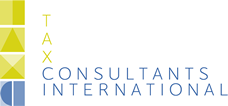VAT advice & compliance VAT
On 19 April 2018 the European Court of Justice has expanded the simplified ABC supply chain transaction for VAT. In a standard A-B-C supply chain transaction, the business operator in country A sells to a business operator in country B, who in turn sells the goods to a business operator in country C. The goods move directly from country A to country C.
For VAT this would normally imply an intra-community supply by the first business operator (A) and the middleman (B), whereby the delivery of the goods physically goes from country A to C. The middleman (B) must register for VAT in country C in order to report this delivery of goods. The consecutive delivery of middleman to final recipient (C) is then a local supply. The middleman must also report this supply in the VAT return of country C.
In a simplified A-B-C supply chain transaction, the middleman (B) does not need to register for a submission of a VAT return in country C. The VAT is fully reversed to the recipient in the third country (country C).
In the case before the European Court of Justice, a German supplier sold goods to a German business operator with an Austrian VAT number, who then sold the goods to Czech recipients. The goods went directly from Germany to the Czech Republic.
For the application of the simplified A-B-C supply transaction, strict conditions must be adhered to. In this case, the German middleman had not complied with certain conditions, such as the German middleman had not explicitly reported the application of this simplified transaction (which is required). Furthermore, it was under debate whether the simplified rules could be applied in this case as the middleman possessed not only an Austrian VAT number but also a German VAT number.
Despite not meeting all formal conditions, the Court of Justice concluded that the context and purposes of this regulation should prevail above the literal wording of the regulation.
The advantage for daily practice is that a business operator with plural VAT numbers can organize its invoicing in such way that it optimizes application and use of the simplified A-B-C supply chain transaction regulations. The administrative burden can be reduced and cash-flow improved.


.png)


